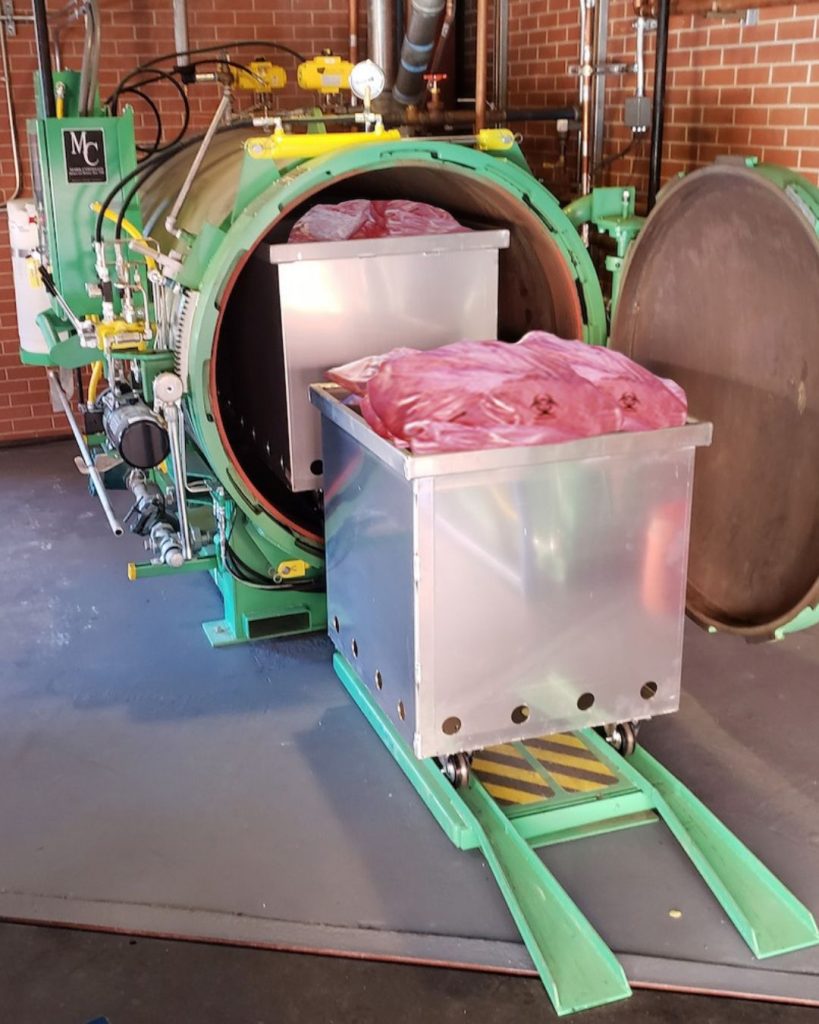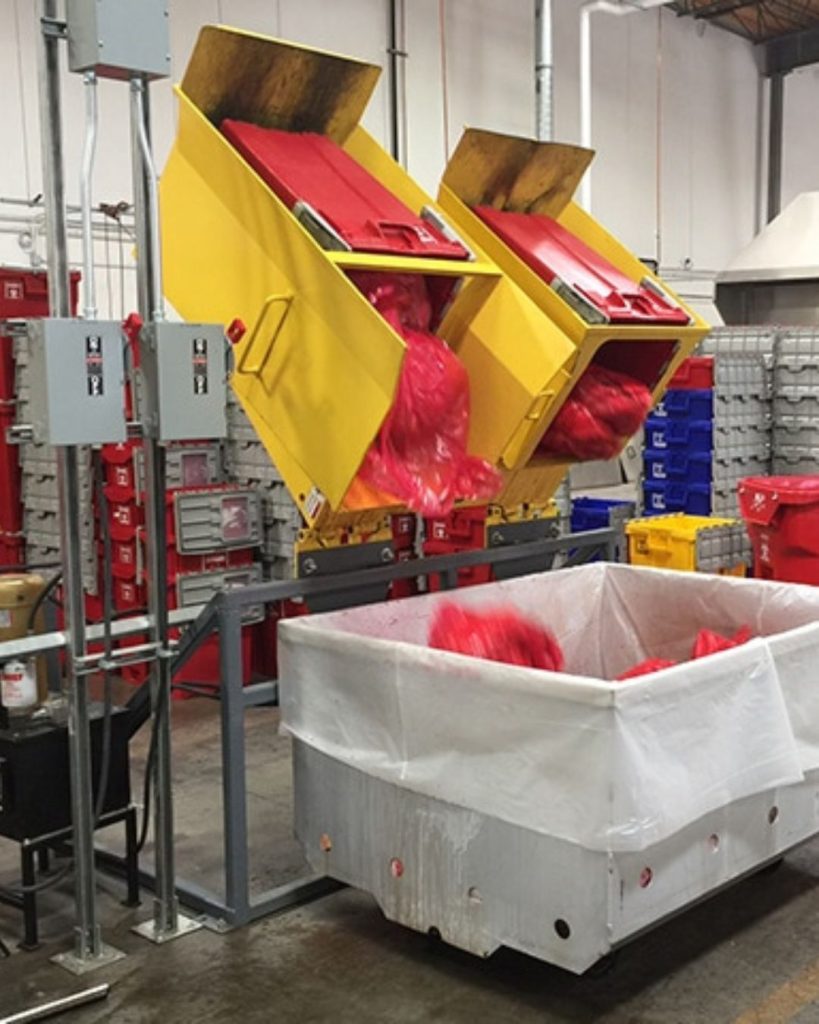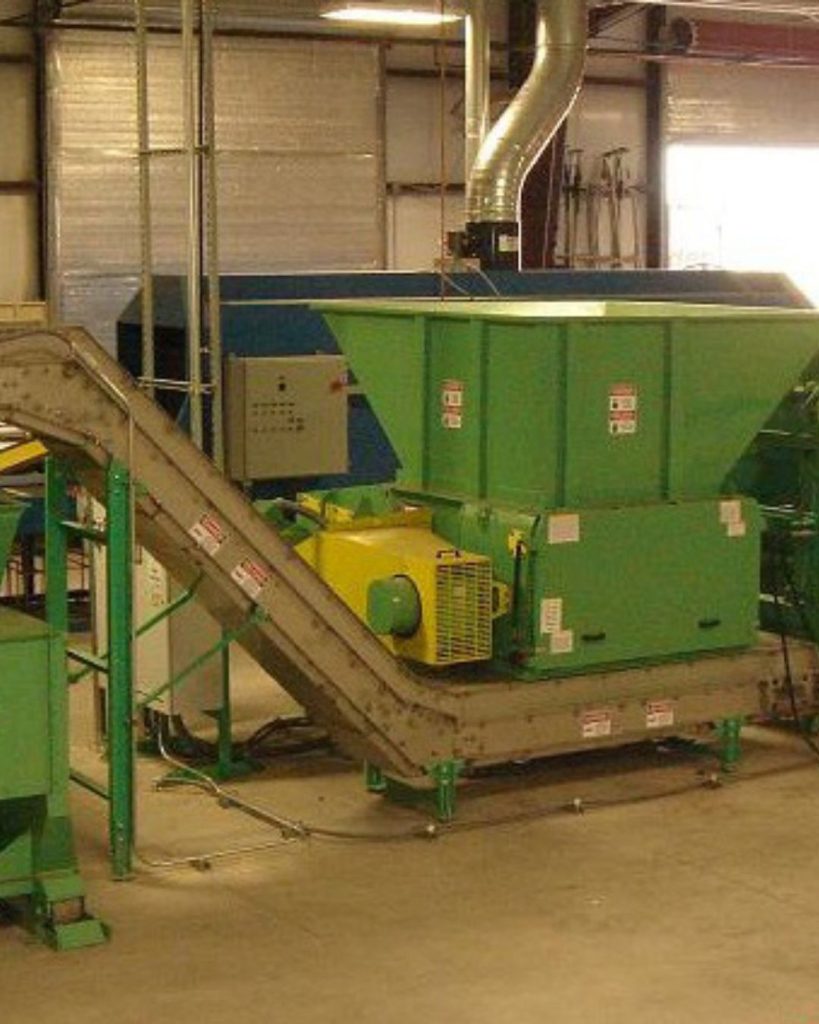

At The Mark-Costello Co., we take a deeply consultative approach to designing granulation systems that reflect the individual operating conditions of each facility. Unlike generic machinery that forces users to conform their workflow to the equipment, our solutions are designed around how our clients already work. From automotive manufacturing plants dealing with thick molded parts to pharmaceutical operations processing medical-grade resin waste, we recognize that plastic scrap comes in a wide range of shapes, densities, and compositions. Each of these variables influences how plastic should be cut, conveyed, and collected—so we never recommend a machine without first understanding the full picture. Our engineering team evaluates everything from material flow rates and contamination levels to noise limitations, floor space availability, and end-use granule specifications. The result is a highly engineered, purpose-built solution that integrates into your facility without compromising efficiency, safety, or product integrity.
A central factor in any granulation setup is the physical behavior of the plastic itself. Different materials respond uniquely when subjected to mechanical stress. High-density polyethylene (HDPE), for example, is rugged but can deform plastically, making it prone to jamming in improperly configured chambers. Polypropylene (PP), often found in molded parts and industrial containers, tends to fragment cleanly but may vary in brittleness depending on the temperature and processing history. More rigid plastics like polyvinyl chloride (PVC) and polyethylene terephthalate (PET) bring their own set of challenges, particularly around heat sensitivity and the risk of degradation during processing. These materials can become brittle or give off fumes if processed at improper speeds or under excessive friction. Our machines are fine-tuned with variable rotor speeds, customizable cutting geometries, and screen configurations that allow for the safe and efficient handling of each material type. This attention to technical detail ensures that the granules produced are uniform, contamination-free, and ready for reintroduction into the manufacturing cycle or resale markets.
Beyond the cutting chamber, The Mark-Costello Co. offers a suite of integrated accessory systems that enhance throughput, reduce manual handling, and improve the overall cleanliness of the process. For high-volume operations, we provide automatic feed conveyors that meter scrap into the granulator at a consistent rate, preventing overloading and preserving blade integrity. To minimize airborne dust and polymer fines, we incorporate cyclone separators and filtration units that maintain a clean working environment—particularly important in food packaging and medical supply industries where contamination cannot be tolerated. We also design output collection systems that include bulk bin drop zones, sealed bagging stations, or feed-back loops for reintegration into process hoppers. For facilities with multiple molding or extrusion stations, our centralized recovery systems allow scrap from various production lines to be collected and granulated at a single location. This modular approach not only improves efficiency but also helps standardize material handling practices across departments.
Our focus on serviceability is just as strong as our focus on performance. Many of our clients operate 24/7 or under high-pressure production timelines, where unexpected downtime can cause costly disruptions. That’s why every system we build includes maintenance-friendly features like quick-release access doors, segmented and reversible rotor knives, and easy-to-swap screens. These thoughtful design elements reduce the time and labor required to perform routine maintenance or address wear-and-tear. Our comprehensive support extends well beyond installation; we provide in-depth operator training sessions, digital and printed manuals, and access to our nationwide service technicians who are available for troubleshooting, repairs, and preventive care. For businesses seeking to transition into more sustainable operations or achieve closed-loop recycling within their production environments, our systems provide a reliable foundation. Whether your goal is to process lightweight films, thick-wall purgings, or a mixture of materials with variable densities and hardness, our solutions give you the control, flexibility, and resilience to handle the job with confidence.

Mark Costello has been a trusted name in waste management for decades, delivering reliable and effective solutions that businesses count on.
Using the latest technology, We ensures that waste management systems are efficient and up to industry standards, from food digesters to compactors.
At Mark Costello,we provides tailored waste management solutions that fit each business’s unique needs, ensuring a smooth integration into existing operations.
Mark Costello is dedicated to helping businesses achieve their sustainability goals by turning waste into valuable resources, supporting a greener future.

Send us a message with your questions or concerns and our team member will contact you. We’d love to hear from you.
Dear Mr. Markle,
I have been working in the Plant Operations of Hospitals for the past 20 years. During that time I have had the responsibility of maintaining various autoclaves for the treatment of biohazardous medical waste.
When I came to Doctors Medical Center a year and a half ago I found myself in charge of maintaining a Mark-Costello Co. autoclave that was nearly eight years old. After my past experience of trying to keep a high vacuum system with consistent problems in operation, I find maintaining the Mark-Costello gravity fed autoclave a pleasure, as there is seldom a malfunction. I attribute this to the fact they have kept the design simple with no need for highly technical maintenance and high dollar repair parts.
As a point of information, the Model we operate is a AS 512 equipped with a unique “pull out drawer” making it easy for the Housekeeping Staff to load. This unit has a capacity of approximately 750 lbs. per cycle.
We expect to keep our Mark-Costello autoclave in operation for another 8 years or longer !
Dear Mr. Markle:
San Ramon regional Medical Center has owned and operated a Model AS46 Mark-Costello Medical Waste Sterilizer for the past eight years. We are pleased with performance of this equipment and have had a fine working relationship with the Mark-Costello Company. The system continues to function well and allows our facility to avoid the liability and high cost of packaging and hauling untreated infectious waste.
We Anticipate several more years of operation from this waste treatment system
Saludos,
La presente es para agradecer sus servicios a nuestra compañia. Su equipo de trabajo ha sido muy atento y diligente en las gestiones realizadas. Estamos muy complacidos con el equipo, el precio y la calidad de sus servicios.
Esperamos seguir contando con una excelente relacion de negocios en un futuro muy cercano.
Greetings,
This letter is to thank you for your services to our company. Your teamwork has been very attentive and diligent in the way it has been carried out. We are very pleased with the teamwork, the price and the quality of your services.
We expect to continue an excellent business relationship with you in the near future.
To whom it may concern,
Pleased with the equipment
We are quite pleased with our Mark-Costello sterilizer. The sterilizer has been working fine for many years. We recently purchased additional equipment from them, and are impressed with their response time and friendly service. We hope to continue a great working relationship with Mark-Costello in the future for additional pieces of equipment.
“It’s been a great relationship with The Mark-Costello Company; they are very dependable to all of our waste handling requirements and have made us aware of the importance of recycling and the upcoming waste handling issues in the future.”
“We have been very pleased with the performance and the cost savings that the trash compactors from The Mark-Costello Company have provided to our school district.”
My name is David E. and I am responsible for a Mark Costello Co. Auto-Clave, at an inflight Kitchen out here in Kona Hawaii, that is overseen by the USDA / Custom and Borders, federal inspectors. (as you can imagine that is a challenge in its self).
The products that Mark Costello Co. is producing are of good quality. The auto – clave that I am responsible for works 24/7, with very few break downs. This is the only unit available in Kona, making daily operation is critical.
It is nice to know that when I call for tech support and parts, the courteous staff always responds promptly. Being out here in the middle of the pacific, that is crucial to our operation.
I would highly recommend Mark Costello Co.
Most thermoplastics can be processed using a granulator, including HDPE, LDPE, PP, PET, ABS, and PVC. The specific machine configuration depends on material properties like density, elasticity, and abrasiveness
A shredder is used for coarse size reduction and is ideal for bulky or mixed materials. A grinder may pulverize material more finely. A granulator, on the other hand, produces uniform-sized granules with clean edges that are ready for reprocessing—making it ideal for closed-loop manufacturing systems.
Granulators can be loud, especially high-capacity units. However, our machines are designed with sound-insulated housings and vibration-reduction features. Optional enclosures and silencers are available for noise-sensitive environments.
Absolutely. The Mark-Costello Co. provides integration services including automated feeding, PLC control systems, and remote monitoring. We design systems that work inline with molding, extrusion, or trimming equipment.
Typical output sizes range from 1/8 inch (3mm) to as small as 3/64 inch (1.2mm), depending on the screen used. We’ll help you select the right screen for your application to ensure compatibility with downstream equipment.
Regular blade inspection and sharpening, screen cleaning, and bearing checks are essential. Our machines are built for easy maintenance, and we offer
